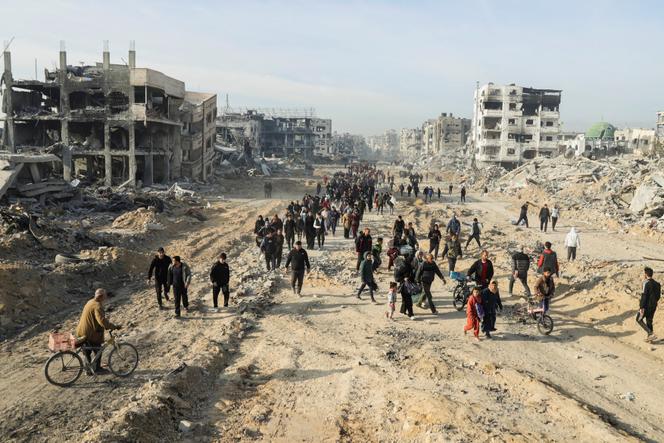


"We were hoping not to be killed at the last moment. It's always the same just before ceasefires. It's always more violent because the Israeli army is trying to put pressure on Hamas," explained Areej Herzallah, a 40-year-old mother, on the phone on Sunday, January 19. Close to her tent in Al-Qarara – not far from Khan Yunis, in the south of the Gaza Strip, where her family has taken refuge for more than a year – the gunfire resounded all night and into the morning. "Shots, bombardments, rockets... We were all together, holding each other. And when 8:30 am came, the official start of the ceasefire, we rejoiced, thinking it was over. But it wasn't. The fighting continued."
Citing "technical reasons," Hamas failed to provide the names of the three hostages due to be handed over later that day. The Israeli prime minister, Benjamin Netanyahu, declared that the ceasefire would only begin once the list had been received. At 10.15 am, the three names were given to the Israelis. An hour later, after 471 days of war in Gaza, triggered on October 7, 2023 by Hamas's attack on Israel, the ceasefire came into effect.
You have 87.46% of this article left to read. The rest is for subscribers only.
